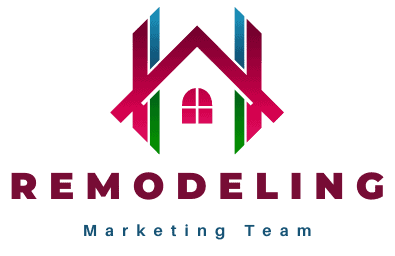Having a professional online presence is crucial for home remodeling contractors. Your online portfolio is not just a gallery of your past projects; it’s a powerful tool that showcases your expertise, attracts new clients, and builds your credibility in the industry. However, choosing the right platform to display your work can be daunting. This guide will help you navigate through the most popular website builders and platforms, ensuring you select the one that best suits your needs.
Key Takeaways
- Importance of an Online Presence:
- An online portfolio is essential for home remodeling contractors to showcase their work, attract new clients, and build credibility.
- Key Features to Look For:
- When choosing a website builder, consider ease of use, design and customization options, SEO and marketing tools, e-commerce capabilities, mobile responsiveness, and support resources.
- WordPress:
- Offers high customization and strong SEO capabilities, ideal for contractors wanting full control over their site.
- Steeper learning curve and requires regular maintenance.
- Wix:
- Known for its user-friendly drag-and-drop interface and a wide range of templates.
- Less flexible in customization and has SEO limitations.
- Squarespace:
- Renowned for beautiful templates and robust marketing tools.
- Offers less flexibility and is more expensive than some other options.
- Weebly:
- Easy to use and affordable, making it great for small businesses and beginners.
- Limited customization and scalability.
- Shopify:
- Excellent e-commerce tools, ideal for contractors selling products or services online.
- Higher cost and less suitable for content-heavy sites.
- Duda:
- Designed for agencies and teams with collaboration tools and responsive designs.
- Higher cost and limited third-party integrations.
- Assessing Your Needs:
- Evaluate your goals, budget, technical skill level, and long-term needs to choose the right platform.
- Future Growth:
- Select a platform that can scale with your business, offering advanced features as you expand.
- Final Recommendations:
- WordPress for full control and customization, Wix or Weebly for ease of use, Squarespace for aesthetics, Shopify for e-commerce, and Duda for collaborative needs.
Key Features to Look for in a Website Builder
Ease of Use
The ideal website builder should have an intuitive interface, allowing you to create and manage your site without needing advanced technical skills. Look for platforms with drag-and-drop functionality, which simplifies the design process and makes it easy to update your site.
Design and Customization
Your website should reflect your brand and the quality of your work. Choose a platform that offers a variety of templates and customization options, enabling you to tailor the look and feel of your site to match your professional image.
SEO and Marketing Tools
Search engine optimization (SEO) is essential for making your website visible to potential clients. Ensure the platform includes built-in SEO features, such as meta tags, keywords, and analytics. Marketing tools, like email marketing integration and social media sharing, can also enhance your online presence.
E-commerce Capabilities
If you plan to sell products or services directly from your website, e-commerce functionality is crucial. Look for platforms that offer secure payment gateways, product catalogs, and inventory management.
Mobile Responsiveness
A significant portion of web traffic comes from mobile devices. Your website must be mobile-friendly, ensuring it looks good and functions well on smartphones and tablets.
Support and Resources
Reliable customer support is vital, especially if you encounter technical issues. Choose a platform that provides comprehensive support, including tutorials, live chat, and community forums.
Popular Website Builders and Platforms for Home Remodeling Contractors
WordPress
Overview
WordPress is a highly customizable and widely used content management system (CMS) that powers over 40% of all websites on the internet. This platform offers unmatched flexibility with thousands of themes and plugins, making it possible to create a unique and functional site tailored to your specific needs. Whether you want to showcase before-and-after photos, write a blog about home remodeling tips, or integrate advanced SEO tools, WordPress provides the robust features necessary to build an impressive online portfolio.
Pros
- High Customization: With thousands of themes and plugins, you can create a unique and functional site tailored to your needs.
- Strong SEO Capabilities: WordPress is known for its excellent SEO features, which help improve your site’s visibility on search engines.
- Large Community: A vast community of users and developers means extensive support and resources are readily available.
Cons
- Steeper Learning Curve: WordPress can be complex for beginners, requiring some time to learn and master.
- Maintenance Requirements: Regular updates and maintenance are necessary to keep your site secure and running smoothly.
Ideal For
Home remodeling contractors who want complete control and customization over their website.
Wix
Overview
Wix is a popular website builder known for its ease of use and flexibility, making it an excellent choice for home remodeling contractors who need to get online quickly. With its intuitive drag-and-drop interface, even those with no technical experience can create a professional-looking website. Wix offers a wide range of templates, specifically designed for various industries, including home remodeling. Its comprehensive support and feature-rich environment allow you to focus on showcasing your projects and connecting with potential clients.
Pros
- Intuitive Builder: The drag-and-drop functionality allows you to design your site quickly and easily.
- Wide Range of Templates: Wix provides a variety of professional templates tailored to different industries.
- Comprehensive Support: Wix offers robust customer support, including tutorials, forums, and live chat.
Cons
- Limited Customization: Compared to WordPress, Wix offers less flexibility in terms of advanced customization.
- SEO Limitations: While Wix has improved its SEO tools, it still lags behind platforms like WordPress in this area.
Ideal For
Home remodeling contractors looking for simplicity and quick setup.
Squarespace
Overview
Squarespace is renowned for its stunning design templates and user-friendly interface, making it a top choice for home remodeling contractors who want their online portfolio to stand out. The platform’s sleek, modern templates are perfect for showcasing high-quality images of your remodeling projects. Squarespace also offers a robust set of marketing tools, including email campaigns and social media integrations, to help you attract and engage with potential clients. Its excellent customer support ensures that you can build and maintain your site with ease.
Pros
- Beautiful Templates: Squarespace’s templates are professionally designed, making it easy to create a visually appealing site.
- Built-in Marketing Tools: The platform includes powerful marketing tools, such as email campaigns and social media integrations.
- Excellent Support: Squarespace provides top-notch customer support, with a focus on helping users build their sites effectively.
Cons
- Less Flexible: Squarespace offers less customization compared to WordPress.
- Higher Cost: It tends to be more expensive than some other website builders.
Ideal For
Home remodeling contractors who prioritize design and aesthetics in their website.
Weebly
Overview
Weebly is known for its simplicity and affordability, making it an attractive option for small businesses and individual home remodeling contractors. The platform’s straightforward drag-and-drop builder allows you to create a professional website without needing any technical skills. Weebly offers a range of templates and essential features to help you showcase your remodeling projects, capture leads, and connect with clients. Its affordable pricing plans make it accessible for contractors on a budget who still want a polished online presence.
Pros
- Easy to Use: Weebly’s interface is highly intuitive, making it easy for anyone to build a website.
- Affordable: Weebly offers competitive pricing plans.
- Good Customer Support: Weebly provides reliable customer support, including live chat and email.
Cons
- Limited Customization: The platform has fewer customization options compared to more advanced builders like WordPress.
- Scalability Issues: Weebly may not be the best choice for larger businesses looking for advanced features.
Ideal For
Small home remodeling businesses and beginners who need a simple, affordable website solution.
Shopify
Overview
Shopify is a leading e-commerce platform designed specifically for selling products online. While it is typically associated with online stores, Shopify can be an excellent choice for home remodeling contractors who offer products or services for sale directly from their website. Shopify provides comprehensive e-commerce tools, secure payment gateways, and robust product management features. This platform is particularly beneficial for contractors looking to expand their business by selling remodeling kits, tools, or other related products.
Pros
- Excellent E-commerce Tools: Shopify provides robust e-commerce features, including product management, secure payments, and shipping integrations.
- Scalable Solutions: Shopify can handle small to large-scale businesses with ease.
- 24/7 Support: Shopify offers round-the-clock customer support.
Cons
- Higher Cost: Shopify’s pricing plans are on the higher end, especially when adding advanced features.
- Less Suitable for Content-Heavy Sites: Shopify is primarily focused on e-commerce, making it less ideal for content-rich websites.
Ideal For
Home remodeling contractors who want to sell products or services online.
Duda
Overview
Duda is a website builder geared towards agencies and larger teams, offering collaborative tools and highly responsive designs. This platform is perfect for home remodeling contractors who work in teams or manage multiple sites. Duda provides a user-friendly interface and templates that are specifically designed to be mobile-responsive, ensuring your site looks great on any device. Its client management features and white-label options make it a strong choice for contractors who want to provide a seamless experience for their clients.
Pros
- Collaboration Tools: Duda is designed for teamwork, offering tools for managing multiple sites and team members.
- Highly Responsive Designs: The platform ensures that your website looks great on all devices.
- Client Management Features: Duda includes client management and white-labeling options.
Cons
- Higher Cost: Duda tends to be more expensive than other builders.
- Limited Integrations: It has fewer third-party integrations compared to platforms like WordPress.
Ideal For
Home remodeling contractors who work in teams and need collaboration tools.
Choosing the Right Platform for Your Needs
Assessing Your Goals and Resources
Before selecting a platform, consider what you need from your website. Are you showcasing projects, generating leads, or selling products? Evaluate your budget, technical skill level, and long-term goals.
Comparative Analysis
Here’s a summary table comparing key features, pros, and cons of each platform:
| Platform | Ease of Use | Customization | SEO Tools | E-commerce | Cost | Ideal For |
| WordPress | Moderate | High | Excellent | Yes | $$ | Full control and customization |
| Wix | Easy | Moderate | Good | Yes | $$ | Simplicity and quick setup |
| Squarespace | Easy | Moderate | Good | Yes | $$$ | Design and aesthetics |
| Weebly | Easy | Limited | Fair | Yes | $ | Small businesses, beginners |
| Shopify | Easy | Moderate | Good | Excellent | $$$ | E-commerce focus |
| Duda | Moderate | High | Good | Yes | $$$ | Agencies, teams |
Future Growth and Scalability
Think about your future needs. Choose a platform that can grow with your business, offering scalability and advanced features as you expand.
Conclusion
Final Recommendations
Choosing the right platform depends on your specific needs and resources. For full control and extensive customization, WordPress is an excellent choice. If ease of use and quick setup are priorities, consider Wix or Weebly. For those focused on aesthetics, Squarespace is ideal. Shopify excels in e-commerce, while Duda is perfect for agencies and collaborative teams.
Next Steps
Start building or improving your online portfolio today. Use the resources and comparisons provided to make an informed decision. Explore tutorials and guides to help you get started on your chosen platform.
FAQs (Frequently Asked Questions)
Why is having an online portfolio important for home remodeling contractors?
An online portfolio is essential for home remodeling contractors as it helps showcase your work, attract new clients, and build credibility in the industry. It serves as a powerful tool to demonstrate your expertise and the quality of your projects, making it easier for potential clients to choose your services.
What are the key features to look for in a website builder for home remodeling portfolios?
The key features to look for include:
- Ease of use with an intuitive interface
- Design and customization options to match your brand
- Built-in SEO and marketing tools to improve visibility
- E-commerce capabilities for selling products or services
- Mobile responsiveness to ensure the site looks good on all devices
- Reliable customer support and resources
How does WordPress benefit home remodeling contractors?
WordPress offers high customization through thousands of themes and plugins, making it ideal for contractors who want complete control over their site. It has strong SEO capabilities to enhance visibility and a large community for extensive support. However, it does have a steeper learning curve and requires regular maintenance.
Is Wix suitable for beginners?
Yes, Wix is highly suitable for beginners due to its intuitive drag-and-drop interface. It offers a wide range of templates and comprehensive support, making it easy for those with no technical experience to create a professional-looking website quickly.
What makes Squarespace a good choice for home remodeling contractors?
Squarespace is known for its beautiful, professionally designed templates, which are perfect for showcasing high-quality images of remodeling projects. It also includes robust marketing tools and excellent customer support, making it a great choice for contractors who prioritize aesthetics and user experience.
What are the limitations of using Weebly for a home remodeling website?
Weebly, while easy to use and affordable, offers limited customization options compared to more advanced builders like WordPress. It also may not be the best choice for larger businesses looking for more advanced features and scalability.
Can Shopify be used by home remodeling contractors who sell products?
Yes, Shopify is an excellent platform for home remodeling contractors who want to sell products or services online. It provides comprehensive e-commerce tools, secure payment gateways, and robust product management features, making it easy to manage an online store.
What is unique about Duda as a website builder for home remodeling contractors?
Duda is designed for agencies and larger teams, offering collaborative tools and highly responsive designs. It’s ideal for contractors who work in teams and need features for managing multiple sites and clients. However, it tends to be more expensive and has fewer third-party integrations.
How do I choose the right platform for my home remodeling business?
Evaluate your specific needs, including what you need from your website (project showcase, lead generation, e-commerce), your budget, technical skill level, and long-term goals. Compare key features, pros, and cons of each platform to make an informed decision.
Can these platforms grow with my business?
Yes, most of these platforms offer scalability. For instance, WordPress and Shopify are known for their scalability and advanced features, which can grow with your business. It’s important to choose a platform that can accommodate your future needs and expansion plans.
This article is a collaboration between Carl Willis and OpenAI’s ChatGPT. Created on May 22, 2024, it combines AI-generated draft material with Willis’s expert revision and oversight, ensuring accuracy and relevance while addressing any AI limitations.






